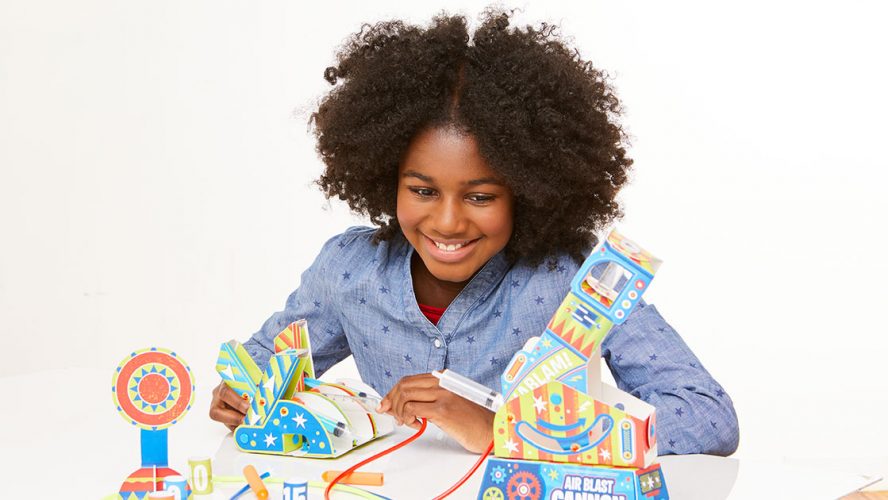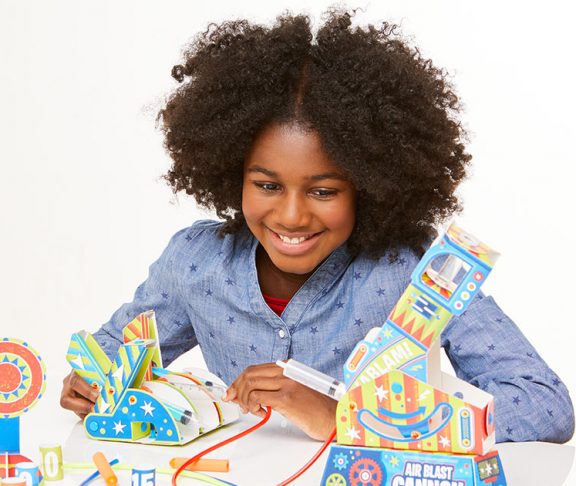These days, young artists and inventors are proud to be a part of the “maker movement,” a cultural celebration of creating things.
Maker spaces are popping up in schools and communities across the country, especially targeting children ages 8 to 12. A report from New Media Consortium and the Consortium for School Networking notes there has been a 14x growth of maker spaces in schools in the past decade around the world.
In these spaces kids are learning problem solving, design and more. At home, toys like Klutz’s do-it-yourself kits keep kids engaged — from building games using circuitry to making bath bombs, children are learning hands-on how things work.
The open-ended play teaches kids flexibility and creative solutions. Here are three ways kids can benefit from being a maker:
1. They’ll learn to enjoy the journey
Kids are always told to focus on finishing what they start, but the maker movement teaches kids they can enjoy the process, as much as they enjoy the finished product.
“Being a maker is all about tinkering, being resilient and creating something you’re really passionate about,” says Netta Rabin, vice president of product development for Klutz, makers of book-based activity kits. “It’s not just following a series of step-by-step instructions but making something unique that really speaks to your interests.”
2. Kids learn in different ways
Some kids learn by reading or seeing, while other kids learn by doing.
Tangible items and seeing how it works can boost understanding of a topic.
“It’s that actual physical connection that creates this learning that is so much deeper and fuller for a lot of children,” says Rabin, noting Klutz kits teach kids topics like engineering, circuitry, physics and more — but the kids think they’re just having fun.
3. They’ll develop confidence
By making things on their own, kids will be more confident and proud of their projects.
Whitney Wilson’s sons have always been interested in STEM. “Like a lot of kids, they like to play around,” says Wilson, who lives in Arlington, Virginia. “It’s satisfying to make something.”
Wilson’s 14-year-old son is using his maker skills to adapt toy cars for kids with disabilities. Is your child a maker?
Kristen Castillo, [email protected]


